The software Dream11 claims to have over 110 million users.

Dream11 is an online fantasy sports app – a type of apps that has sparked debate in recent years, with detractors accusing it of being nothing more than gambling and proponents arguing that it is instead skill-based. On Google Play, fantasy sports are prohibited, while paid tournaments on Dream11 are prohibited in certain Indian states. The Supreme Court of India declared Dream11 fantasy sports to be a ‘Game Of Skill,’ rather than gambling. Dream11 has more than 110 million users in the country.
This, according to the firm, is due to India’s rising Internet penetration and smartphone usage, as well as cricket’s overwhelming popularity. Dream11 is a daily fantasy sports site that provides a freemium concept for a single match. Users can participate in either free practise contests or paid contests that demand an entrance fee.
According to a recent FIFS-KPMG study, gross revenues for online fantasy sports operators were over Rs. 2,400 crore in FY 2020, up from over Rs. 920 crore in FY 2019, an almost three-fold gain over a 12-month period.
According to the research, the user base of Indian online fantasy sports platforms has grown rapidly year on year, from 2 million in 2016 to 90 million in 2019. Dream11 has been riding this wave, aided by extremely popular athletic competitions like the IPL, and is currently the largest fantasy sports platform in the world.
Expert advice: “Fantasy sports allow one to immerse themselves in the game,” says TechArc principal analyst Faisal Kawoosa. Cricket is a national sport of India. As a result, there is a strong link and a rationale for its appeal.
Esports and other forms of internet gaming are already a reality, and they are potential and viable long-term business. I believe that as the business expands in India, the flaws will be addressed, such as legal issues. In these games, I believe there is a substantial interplay between skill and chance.
Gadgets 360 met with Bhavit Sheth, Dream11’s Co-Founder and COO, to learn more about the company’s incredible journey thus far and future ambitions.
1) Tell us about your work experience before to Dream11.
In 2007, I graduated from Mumbai’s DJ Sanghavi College of Engineering, and in 2008, I co-founded Dream11 with Harsh. We experimented with several online fantasy sports (OFS) models from 2008 to 2012 to see which would work best for Indian sports enthusiasts.
2. What prompted you to create Dream11?
Dream11 arose from a desire to address a personal issue. Harsh and I have always been sports fanatics who have taken part in the EPL’s online fantasy sports competitions. We began exploring for fantasy sports platforms that would host the IPL when it first began in 2007, but there were none. We felt compelled to share the excitement of fantasy cricket with our cricket-crazed country. Our common interests in technology, athletics, and fantasy sports grew into something much bigger.
3. How did your first several years at Dream11 go, and what were some of the challenges you faced?
Fantasy sports have been around for more than 50 years, but they were a new idea to Indian sports enthusiasts. We had to educate potential recruits, investors, and, most crucially, consumers about fantasy sports when we launched it in India in 2008. This was also a time when the bulk of the people did not have easy access to high-speed Internet.
The first few years of beginning a business are always the most difficult and memorable for an entrepreneur. When we first created Dream11 in 2008, we envisioned it as a sports social network with fantasy sports at its centre. We offered a free-to-play, season-long, ad-driven strategy at the time. However, the original idea did not work out, and we experimented with several models for the following three years until settling on the present shape in 2012.
4. When did you see significant growth in your business, and why?
Dream11 began seeing remarkable growth in January 2015, thanks to simple access to the internet and cellphones, as well as the proper amount of education and product-market fit. We obtained our Series A investment from Kalaari Capital and Think Investments after reaching 3 lakh customers. We’ve been gaining traction and hitting new goals every year since then.
To raise awareness, we gradually began collaborating with sports leagues, both domestic and international. We have created fantasy sports for a variety of other sports, like football and kabaddi, in addition to cricket.
In 2017, we appointed Dhoni as our Brand Ambassador and received recognition as a skill-based game from the Punjab and Haryana High Court. Dream11 now boasts 110 million members, provides fantasy sports for 11 sports, and is the title sponsor of the IPL 2020 season.
5. What inspired you to call yourself ‘Dream11’?
Dream11 is a sports term that refers to an 11-player fantasy squad. The name Dream11 felt appropriate because the platform was designed to allow sports enthusiasts to construct their own dream squad for their favourite sports such as cricket, hockey, football, and so on.
6. Fantasy sports applications are no longer available in the Google Play store. How did you build consumers’ confidence in order for them to download the app via other means?
Taking a ‘user-first’ approach has proven to be the most effective strategy for Dream11. We had a tiny staff and a limited user base when we first began Dream11. We wanted to build a product that had an outstanding user experience and fulfilled the demands of sports lovers because online fantasy sports were new to Indian sports viewers. We made the decision to establish relationships with our users in order to obtain direct input and feedback. This allowed us to keep improving Dream11. Users also realised they were being heard and that they could rely on us.
Many of our early decisions about prioritising customer needs and engaging with them directly paid off in terms of gaining user trust and loyalty. Because fantasy sports are fundamentally social, individuals who had a positive experience on the platform told their friends and family about it. We ultimately created a referral programme, which aided our development by increasing user conversions and encouraging favourable word-of-mouth referrals.
7. What is the appeal of fantasy sports in India?
India is a cricket-crazed country with a large number of sports fans. In India, there are approximately 850 million sports enthusiasts, with 400 million of them watching or participating in sports online. We all have strong opinions, particularly when it comes to team selection. Enthusiasts of online fantasy sports have the chance to demonstrate their knowledge of the sport and compete with friends, family, and other sports fans who share their enthusiasm.
Fantasy sports encourage people to participate actively in the sport and make live events more interesting to watch. According to studies, fantasy sports boost sports consumption by 60% among enthusiasts. It was also discovered that virtually every game is now watched by 48 per cent of fantasy sports users, regardless of the team or nation involved.
8. How did the IPL 2021’s unexpected suspension affect Dream11?
The BCCI’s decision to postpone the IPL was one we agreed with. At the moment, it was critical to concentrate on resolving the situation and protecting the health and safety of all those involved. We were impacted since fantasy sports is totally reliant on live athletic events, and the IPL is the most popular. While not on the same scale as the IPL, we were nevertheless able to keep people engaged by hosting athletic events in areas where the epidemic was less severe at the time. We eagerly anticipate the start of the second half of the IPL in September 2021.
9. How does Dream11 keep a huge number of players engaged on the app, particularly during major events like the IPL? What are the technological know-how and standards that this is based on?
We’ve handled 80 million queries per minute and over 5.5 million concurrent users during major competitions. While a lot of work has gone into getting our systems ready, one of the most important aspects of our two-pronged strategy – predictive and reactive – has been early cloud adoption. Every match’s projected traffic is predicted by our automated platform, and baseline IT Infrastructure Deployment is handled by automatic scripts. Each release must be evaluated against the predicted load’s performance and resilience in our deployment workflow. Before we release features, we have a detailed plan for doing load testing. This will prepare us for future traffic increases.
Our microservices are horizontally auto-scalable, allowing them to handle a spike in user demands. We scale this prior to the commencement of the match, which is also the deadline for creating a fantasy sports team, and based on traffic estimates.
Personalization, improved gaming, content creation, real-time leader boards, and other product upgrades all rely significantly on data analytics. Deep Learning models are also being developed to analyse consumer behaviour and provide a more personalised user experience. Artificial Intelligence and Machine Learning are used to identify unusual behaviour throughout the system, produce alarms, and occasionally perform self-corrective measures. We use preventative and investigative measures to monitor its apps and infrastructure to maintain data security. We now have over 300 Spartans [what Dream11 names its employees] on the tech team, and we will be adding another 200 Spartans in tech, design, and product in the next six months as we continue to ramp up.
10. What have you learned the most from the COVID-19 crisis?
It’s critical to be able to swiftly adjust to any environment in order to live and prosper. With the entire world coming to a halt at the start of COVID-19, live sporting events throughout the world were also disrupted. As a result, the fantasy sports business was affected. We, on the other hand, used it as a chance to reorganise and reassess our approach. From a product viewpoint, we offered other sports such as baseball and handball, as well as leagues held in areas that had begun to recover from the epidemic, such as St. Lucia, Bundesliga, La Liga, and the EPL, during COVID-19. In terms of technology, we paid off our debt and updated our systems. Despite the financial effect, we persisted with our hiring goals and expanded our staff of outstanding Sportans.
We realised the importance of transparent and open communication during the pandemic and have taken several steps to ensure that everyone is heard and that appropriate support for physical and mental health management is provided with access to professionals through our partnership with Visit and Santulan, which provide confidential consultations, health check-ups, and counselling. We made sure that our Sportans prioritised their health and safety above their profession and employment security because the epidemic affected virtually everyone.
We created a Rapid COVID Resource Channel for rapid COVID-related assistance, ranging from home resources to medical assistance or hospitalisation. We also started a free immunisation push around the country for all Sportans and their families. All of this is on top of our regular internal initiatives to help Sportans de-stress, strengthen team bonds, and improve their moods, such as weekly AMA sessions, fun contests and quizzes, a 90-minute mandatory lunch break, no-meeting Thursdays, and surprise gifts for all Sportans and their families.
11. Do you have any management mantras you’d want to share with aspiring entrepreneurs?
As a business owner, my advice is to believe in your goal, unite your staff around it, and persevere. When things aren’t going your way, it’s tempting to give up, yet perseverance will help you get through the tough times. It’s perfectly OK to make errors and fail, but you must fail quickly and learn quickly. Finally, whether it’s a member of your team, a mentor, or a peer, make sure you have someone who can act as a sounding board.
12. What is Dream11’s workforce strength? Are you in the market for a new employee right now?
We now have 500+ Sportans at Dream11 and are looking to employ around 200+ more in the next six months across key areas in tech, design, and product.

